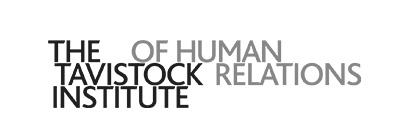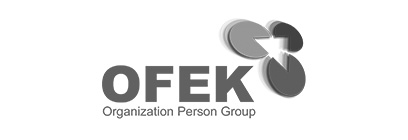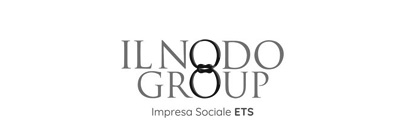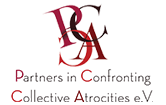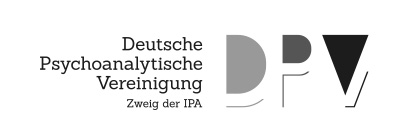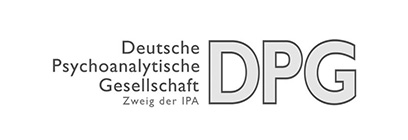PCCA Conference Series
OTHERING
and Hatred of
DIVERSITY
PCCA – Partners in Confronting Collective Atrocities
invites you to participate in its new conference series
The world we live in is marked by rapid change and unexpected shifts, whether because of war, migration, racism, or religious and ethnic persecution, which unceasingly undermine and challenge the traditional order of political, economic, social and individual life. What is familiar and stable is severely threatened, and with it, traditional values and identities are questioned and found to be lacking, as if the only solution possible is to replace them with what is new, dominant and fashionable. These destructive trends are manipulated and amplified by the all-prevalent social media. As identities and values founder, there is a growing sense of instability, loss of trust and lack of safety.
In such circumstances, the Other who represents a different identity and divergent social values readily becomes the signifier of the threat to me personally, and the source of danger for my group and cohort.
Racism and Othering co-exist at both the individual and systemic levels. Manifestations of differences and diversity challenge the quest for the purity of self, race and nation. The tendency at both the individual and group level is to project such fears and hatred outwards, and to identify the Other, who is different, as the enemy that exists beyond the boundaries of self and group identities. This extreme differentiation or splitting can easily be exploited by political leadership to generate aggression towards the Other in service of perceived threats around survival. If not checked, such splitting may deteriorate into violence and persecution of others as the way to restore and regain stability, safety, and homogeneity, or purity — however illusory or unattainable that notion may be.
PCCA – Partners in Confronting Collective Atrocities is an organisation that works towards developing strategies to engage with the legacy of past and present atrocities so as to open up possibilities for a more hopeful future. Over the past 30 years, PCCA has offered various “learning from experience” events to explore individual and societal processes in the occurrence of atrocities, and received the 2019 Sigourney Award for its pioneering interventions. PCCA’s commitment to confronting collective atrocities is not limited to those in the past.
The currently prominent global trends of hatred and violence towards otherness and diversity must not be ignored. They reflect the spread of present hostilities and atrocities, as well as the potential for future continuation or escalation.
PCCA is therefore launching a series of conferences to understand and address these trends and the phenomena that drive them.
These conferences aim to enable participants to encounter and explore their internal stance and lived experiences of othering, racism, exclusion and inclusion – as these relate to their identities and experiences of self and others within the conference setting. This is so as to foster deeper understanding of these societal dynamics and reduce the unconscious influence of such internal stances in everyday life.
The series consists of three ONLINE conferences which may be attended separately or altogether, followed by an in-person conference in 2026.
For a richer, more rounded learning experience, we recommend participation in all three conferences.
If you are:
- Concerned about the growing trends of hatred, racism, and violence toward difference and diversity, and its implications for the integration and stability of our democratic societies
- Wondering how we — as individuals, and our communities and institutions — may, consciously or unconsciously, contribute to dynamics of othering, exclusion and inclusion
- Curious to explore the psychological, social, and systemic forces that underpin these patterns of splitting via othering and exclusion — within individuals, groups, and societies
then we encourage you to participate in these PCCA experiential conferences!
ABOUT THE SERIES
This new PCCA series explores the psychological, systemic and societal dynamics of othering and the hatred of diversity through three online experiential conferences.
Taken as a whole, the series offers an evolving exploration of how responses to the Other are enacted and internalized — within ourselves, our groups, and our societies — and how these broader patterns take shape through particular historical, political, and emotional contexts.
While thematically related, each conference focuses on a different and specific expression or facet of these dynamics — antisemitism, attitudes toward migration, and Islamophobia — inviting the exploration of distinct aspects of otherness and exclusion as they manifest in today’s world.
You may choose to join one, two, or all three parts of the series. While each conference stands on its own, participating in the full series offers a cumulative opportunity to explore the extent to which different forms of othering — while contextually distinct — reveal shared psychological, systemic and societal patterns.
All three conferences are built on the same experiential learning model, drawn from the Tavistock Group Relations tradition — where insight arises through actively experiencing and reflecting on, the dynamics unfolding in the “here and now.”
The “here and now” experiential model offers a unique way to explore, learn, and generate insight — not through lectures or theory, but through direct engagement with the dynamics unfolding within the group.
Over several days, a temporary learning organisation or community is created. The thoughts, roles, emotions, and interactions that emerge between participants — in real time — become the raw material for reflection, inquiry and understanding.
The assumption is that the conference system functions as a microcosm — a fractal — of the society in which we live. The experiences, interactions, and dynamics that unfold within it — including those between individuals — are not isolated, but embedded in and reflective of the patterns that shape the groups, organisations, institutions, and communities to which we belong.
This process enables participants to discover how the burdens of the past and the assumptions that govern our behavior, may continue to live within us — and to consider what it might take to move toward a different and more hopeful future.
We believe that individual movement can foster collective movement, and that PCCA’s experiential conferences continue to serve this aim.
The temporary learning organisation is designed and managed by a team of experienced consultants, who support the learning process, while also being partners in learning. A different team will work with each conference.
Participants engage in a variety of structured events — including large groups, small groups, here-and-now events, and review sessions — each offering a different opportunity to reflect, take up roles, and encounter the emotional and systemic dynamics of group and community life around the theme of the conference.
Together, these elements form the framework through which learning becomes possible.
A vital part of the learning process is considering how insights from the conference can be applied in one’s personal, professional, social, and political life.
PCCA has been engaged in this kind of work for many years.
It grew out of the recognition that the legacy of the Holocaust continued to constrain the capacity of a group of German and Israeli psychoanalysts to relate to and work with one another.
In response, the first experiential “Nazareth” Conferences were created — based on the Group Relations model developed at the Tavistock Institute of Human Relations in London, which integrates psychoanalytic and systems approaches.
This model was specially adapted to provide a setting in which ordinarily disowned experiences relating to the Holocaust could be discovered, voiced, and comprehended.
While PCCA’s roots lie in the Holocaust and its transgenerational impact, its work has since expanded to include different groups and other complex societal challenges, traumas and tensions — including the Israeli–Palestinian conflict, the changing identity of Europe, the COVID-19 pandemic, the war in Ukraine, growing threats to democracy around the world, and the human factor in the self-imposed atrocity of climate change.
Through its experiential “learning from experience” conferences, PCCA offers spaces where individuals and groups can reflect on how collective trauma and societal pressures live within and between us — and how acknowledging these forces may open the possibility of transformation, responsibility, and hope.
The 2025-2026 series of conferences is the next step in this continuing work.
This series of conferences is open to anyone interested in exploring the internal and external dynamics that shape how we relate to difference, diversity, othering and exclusion.
You may be concerned about rising racism, polarization, and violence. You may find that recent events have stirred emotional responses or surfaced unfamiliar memories. Or you may simply be curious to understand more deeply how societal processes affect you, your communities, and the organisations and systems in which you are involved.
No previous experience with PCCA or Group Relations is needed — only curiosity, a willingness to learn from lived experience, and an interest in engaging with the dynamics that unfold between self, other, and the wider community – whether in a group, organisation or society.
Participants in PCCA conferences have included psychoanalysts, psychotherapists, consultants, coaches, educators, executives in the private and public sectors, social and environmental scientists, activists, and others. Some come from professional or academic contexts; others are engaged citizens drawn by the opportunity to reflect, inquire, and engage more deeply with the world around and within them.
Registration implies a commitment to participate throughout the conference.
THE THREE ONLINE CONFERENCES
Antisemitism and Otherness
11, 12 & 14 September 2025 · Online
(First in the three-part series Othering and Hatred of Diversity)
“There is one people scattered throughout the peoples whose religion is different from all others.
— Haman, in the Book of Esther
Antisemitism is one of the oldest and most persistent forms of collective hatred. It mutates across time and place, taking on new language and symbols — yet remaining rooted in enduring projections of fear, envy, and blame. The Jew as outsider, scapegoat, invisible infiltrator or global manipulator: these archetypes are deeply embedded in the cultural and unconscious fabric of many societies, including those that pride themselves on openness and diversity.
Historically, antisemitism has been striking in its contradictions. Jews have been hated for being too poor and too rich, too radical and too conservative, too insular and too assimilated. In the Middle Ages, they were persecuted for their religion; in the 19th and 20th centuries, for their supposed race. In recent years, the focus has often shifted to the existence and actions of their nation-state, Israel, — raising difficult questions about the point at which reasonable political criticism crosses the line into a kind of irrational demonization.
How can we understand these contradictions? Why have these stereotypes and myths been perpetuated and sustained? How do we explain the shifting portrayal of Jews as both victims and aggressors, both in the Diaspora and in Israel itself?
Perhaps antisemitism, at every stage, reflects more than bigotry — and signals a deeper societal struggle to tolerate difference. If Jews have long been marked as different – perceived as the Other, set apart, mistrusted, mythologized – can antisemitism be seen not only as a uniquely persistent hatred but also a paradigm for how societies manage, or fail to manage, other forms of difference? Or otherness?
Exploring the dynamics of antisemitism in this present moment, then, may also open a window onto the broader dynamics of othering, exclusion, and inclusion. What does it mean to be marked as Other — by race, by religion, by nation, by myth? Is it a way of locating blame and reinforcing group identity through exclusion? What collective fantasies or anxieties are projected on to Jews, globally? And why, even today, does this hatred, remain so difficult to acknowledge and think about — even in spaces that champion justice and equality?
From 11–14 September 2025, PCCA invites participants from diverse backgrounds and regions to examine these and other questions in an online experiential conference, an application of the Tavistock Group Relations model. Working in large and small groups, here-and-now events, and review sessions, we will explore:
- The persistence and adaptability of antisemitism — regardless of whether it emerges in the religious, racial, or political arenas
- How Jewishness becomes a receptacle for anxieties, projections, and the denial of complexity in the Other
- The psychic and societal functions of antisemitism: what collective fantasies it carries, and how fear of the Other continues to shape identity, belonging, and leadership
- How individuals, groups, and institutions consciously or unconsciously participate in these dynamics
- Antisemitism as a form of Othering and how this can deepen our understanding of broader societal responses to difference
What becomes possible when such tensions are acknowledged, explored and worked with in real time? Can we actively challenge the narratives and structures that perpetuate prejudice and discrimination?
This conference is the first in Othering and Hatred of Diversity, a three-part PCCA series exploring fear of difference and the forces that fracture communities and threaten democratic values.
Whether you identify as Jewish or not, whether you come as someone affected by antisemitism, grappling with these or similar tensions in your own context, with a desire to reflect on what this topic evokes in you, or simply curious about societal dynamics and your role in them, you are warmly invited to join a temporary learning community where personal, political, and unconscious processes can be examined together.
- Gain deeper insight into how antisemitism operates both systemically and psychically
- Experience Tavistock-style learning that links individual experience with group and societal dynamics
- Develop a deeper understanding about identity, history, and difference, when working in the presence of the Other
- Contribute to a wider network of people committed to confronting collective atrocities — past, present, and yet to happen — and to considering what it takes to live with, rather than against, those who are not “like us”
Places are limited to preserve an intensive learning environment. Early registration is strongly recommended.
“Antisemitism is the world’s most reliable early warning sign of a major threat to freedom, humanity and the dignity of difference. It matters to all of us. Which is why we must fight it together.” — Rabbi Lord Jonathan Sacks
Staff
Consultant staff will be drawn from the list below.
Staff are collectively responsible for managing the conference
and will take up consultant roles in the different events.

Leila Djemal | MA
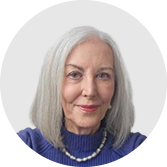
Olya Khaleelee | MA
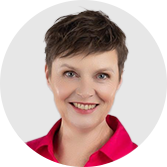
Katarzyna Gębala | MA

Leslie Brissett JP | PhD, FRSA
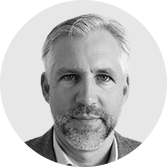
Markus Feil | Dr. biol. hum.
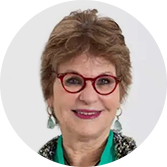
Mira Erlich-Ginor | MA

Lubna Khalid | MA

Saleem Khliefi | BA
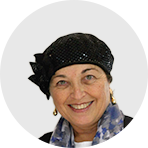
Miriam Shapira | MA

Mannie Sher | AAPSW., TQAP., FBAP., PhD
The Double-Absence
Despair, Displacement, and Hope in Migration
5–7 December 2025 · Online
(Second in the three-part series Othering and Hatred of Diversity)
Across continents and centuries, people have always moved—pushed by danger such as war or natural catastrophe, pulled by promise for a better life, or stirred by an inner call to widen their horizons. Yet for many migrants the journey is shadowed by what French psychoanalyst Abdelmalek Sayad named the double-absence: leaving one place but never fully arriving in the next. A piece of home is lost, while a part of the new land remains out of reach. Long after the borders are crossed, yearning and fragmented identity keep travelling within.
In our postcolonial, hyper-connected age, migration has taken on fresh intensity. Where once European white powers imposed themselves on darker nations, we now witness a counter-flow: peoples of colour entering white-majority societies—yet doing so not as conquerors but as under-resourced underdogs. Modern passports, walls and visa regimes turn ancient human movement into a high-stakes test of belonging.
What, exactly, are we trying to keep out—or to protect—when we fortify our frontiers with walls, fences, and license rhetoric that brands diversity a threat? Which parts of ourselves remain un-integrated, such that we must project them onto an “Other”?
From 5th to 7th December 2025, PCCA invites participants from every region and walk of life to explore these tensions in an online experiential conference, an application of the Group Relations model. Working in large and small groups, in review sessions and in here-and-now events, you will have the opportunity to examine:
- Despair and hope: how flight from war, persecution or economic precariousness is fuelled by despair, while the imagined future that beckons is sustained by hope.
- Historical echoes: the lingering traces of colonial privilege, the reversal of direction without a reversal of power, and the psychodynamics of guilt, fear and entitlement.
- Contemporary defences: the rise of right-wing populism, the urge to build walls—literal and symbolic—and the new forms of othering that flourish when societies avoid integrating their own disowned parts.
This conference is the second instalment of Othering and Hatred of Diversity, PCCA’s three-event examination of the forces that fracture communities.
Whether you are a migrant or host, scholar or activist, policymaker or citizen, you are warmly invited to join colleagues from around the globe in a temporary learning community where personal stories meet societal patterns.
- Gain deeper insight into the emotional currents shaping today’s migration debates.
- Experience Tavistock-style learning that links individual experience with collective dynamics.
- Develop skills for dialogue and integration that you can carry back to your organisations and communities.
- Contribute to a worldwide network committed to confronting collective atrocities—past, present and potential.
Places are limited to preserve an intensive learning environment. Early registration is strongly recommended.
Staff
Consultant staff will be drawn from the list below.
Staff are collectively responsible for managing the conference
and will take up consultant roles in the different events.
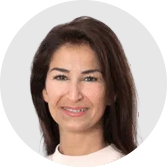
Nadine Tchelebi | PhD

Shmuel Erlich | PhD
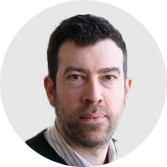
Matthew Gieve | MSc, MBPsS
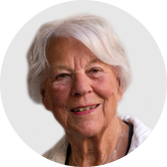
Renate Grønvold Bugge | MSc

Maxine Dennis | MSc, TQAP.M.Inst.Psychoanal.

Anna Frank | Dipl.-Psych.

Julian Lousada
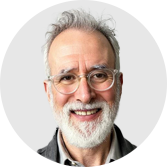
Jack Marmorstein | MA Ed.S

Nicola Sahhar | MSc, DGPT, IAPSP
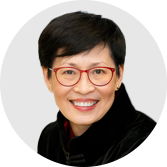
Pearl Tran | MBA., M.A.Psy
Islamophobia in an Upside-Down World
30 January – 1 February 2026 · Online
(Third in the three-part series Othering and Hatred of Diversity)
The history of Islamophobia is complex and deeply rooted in centuries of political, religious, and cultural conflict. Islamophobia has evolved significantly over time from historical religious rivalries and colonial attitudes into a modern-day phenomenon shaped by geopolitics, media, and extremist actions, as well as by social anxieties. Islamophobia is the fear, hatred, or prejudice against Islam or people who are perceived to be Muslim, Arab or both. Islamophobia often stems from ignorance, misinformation, or political agendas. It is a form of racism.
Islamophobia manifests in various ways today, ranging from discrimination and hate crimes to institutional biases and political rhetoric.
Some key manifestations include
- Hate Crimes and Violence: There has been a sharp rise in physical assaults, attacks on cultural centres, vandalism of mosques, and verbal abuse targeting Muslims. In the UK, for example, Islamophobic incidents reached record levels in 2024, with a 165% increase in reports over two years. Offline abuse has also increased significantly.
- Institutional Discrimination: This occurs in workplaces, schools, housing and public services and includes increased surveillance and travel bans. Some European countries have enacted laws that disproportionately target Muslims, such as restrictions on religious attire and exclusion from leadership positions. Muslim women, particularly those wearing hijabs, face increased workplace discrimination.
- Political and Media Narratives: Islamophobia is often fuelled by political rhetoric and media portrayals that associate Islam with extremism. Some governments have been accused of using anti-Muslim sentiment for political gain, especially during election campaigns and periods of instability.
- Community Initiatives and Responses: Efforts are being made to combat Islamophobia and to support Muslim communities. International conferences and organizations are also working to address the issue, to challenge harmful stereotypes and promote inclusivity and intercultural understanding.
At a time of global disorientation involving political upheaval, shifting alliances, economic anxiety, and cultural fracture, fear of difference creates splitting and polarization and seeks a target for negative and destructive feelings. Islam, Muslims and Arabs are often positioned as the Other: the foreigner within, the threat to modernity, the regression to traditional gender relations, and the opposition to the fragile ideal of liberal progress and to democracy itself.
But Islamophobia is not simply a set of hostile attitudes. It is a psychic and political defence — a way of warding off strangeness, allowing the ‘in-group’ to project all sorts of unintegrated fears and social contradictions into the Other.
From 30 January to 1 February 2026, PCCA invites participants from across diverse backgrounds and regions to examine these dynamics in an online conference, an application of the Tavistock Group Relations model of experiential learning. In “here-and-now events”, in large and small groups, as well as review sessions, we will explore and seek to understand:
- Islam as screen and mirror: how projected fears of violence, submission, or chaos are displaced onto Islam, Muslim and Arab others, and what these projections reveal about the inner life of societies and us as citizens.
- The legacy of colonial knowledge: how Europe and the West have historically constructed the Muslim and Arab subject, and how these constructions persist in institutions, media, and group life.
- Identity, integration, and unbelonging: the tension between visibility and erasure, and the emotional toll of being labelled “suspect,” an “exception,” or a “representative” of a Muslim subgroup.
This conference is the final instalment of Othering and Hatred of Diversity, PCCA’s three-part exploration of the forces that divide communities.
Whether you come as someone affected by Islamophobia, wrestling with these dynamics in your setting, or seeking to better understand your role in relation to them, you are invited to join others in a temporary learning community where unconscious assumptions can be surfaced, questioned, and better understood.
- Deepen your understanding of how Islamophobia is produced and sustained — psychologically, historically, and systemically.
- Participate in Tavistock-style learning that bridges personal experience with social context and group dynamics.
- Reflect on your own identifications and projections in the context of fear, power, and difference.
- Contribute to a broader effort to confront exclusion and imagine more honest forms of recognition and responsibility.
Places are limited to ensure a focused and intensive learning environment. Early registration is recommended.
Staff
Consultant staff will be drawn from the list below.
Staff are collectively responsible for managing the conference
and will take up consultant roles in the different events.

Louisa Diana Brunner | PhD

Olya Khaleelee | MA

Nicola Sahhar | MSc, DGPT, IAPSP
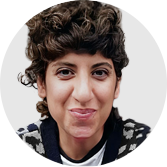
Soulmaz Bashirinia | MSc

Mira Erlich-Ginor | MA

Mo Khan | MA
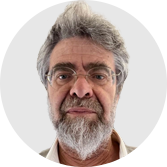
Luca Mingarelli

Ben Neal

Dr Allan Shafer | MA

Lopa Winters | MD

ABOUT PCCA
PARTNERS IN CONFRONTING COLLECTIVE ATROCITIES works towards developing strategies to engage with the legacy of past and present atrocities so as to open up possibilities for a more hopeful future.
Its aim is to work through the lingering effects of conflict, collective trauma and societal challenges that lead to destructive escalation, with the goal of fostering better understanding among groups and communities worldwide.
PCCA began by exploring the legacy of the Holocaust and has since expanded to include the Israeli-Palestinian conflict, Europe’s shifting identity, the COVID-19 pandemic, the war in Ukraine, rising threats to democracy, the human factor in the self-imposed atrocity of climate change, and more.
In 2019, PCCA received the Sigourney Award for its work in pioneering community-based psychoanalytic/social interventions to address the residual effects of trauma and atrocities, which was recognized as an outstanding contribution to psychoanalysis and its ability to reduce human suffering and understand human affairs.
REGISTRATION
Where
The conferences will be held online and will take place on Zoom.
Details will be sent to registered participants in advance of the conference.
When
Conference Events will take place at the following times (Central European CET):
Antisemitism
and Otherness
-
Thursday 11 September 2025
11:00-18:30 -
Friday 12 September 2025
11:00-15:30 -
Sunday 14 September 2025
11:00-18:15
The Double-Absence Despair, Displacement, Hope in Migration
-
Friday 5 December 2025
12:00-19:30 -
Saturday 6 December 2025
12:00-19:30 -
Sunday 7 December 2025
12:00-19:30
Islamophobia in
an Upside-Down World
-
Friday 30 January 2026
10:30-17:30 -
Saturday 31 January 2026
10:30-17:30 -
Sunday 1 February 2026
10:30-17:30
How to Register
To register for the conference, please fill out the online Registration Form.
Registration will take effect once payment has been made.
Note: Early registration is advised as space is limited.
Last date for registration for Islamophobia in and Upside-Down World: 25.01.2026.
Why Register for the Full Series?
Each conference stands alone – but taken together, they offer a powerful opportunity
to explore different manifestations of othering and exclusion across societal contexts.
For the deepest learning experience and best value, we recommend
participating in the full three-part series.
FEES
| Early Bird Rate | Regular Rate | |
|---|---|---|
| One Conference | €395 | €495 |
| Two Conferences | €640 (€320 per conference) |
€790 (€395 per conference) |
| Three Conferences | €885 (€295 per conference) |
€1135 (€378 per conference) |
A reduction of € 70 can be requested by students and participants from Eastern Europe and Developing Countries.
A limited number of partial bursaries will be available on a ‘first come, first served basis.’
To apply for a bursary, please fill out the Registration Form and send a request with a short description of the relevant background no later than 17 December 2025.
Early Bird Deadlines
If registering for more than one conference, your early bird deadline is based
on the earliest event in your selection.
Antisemitism and Otherness – 25 July 2025
The Double-Absence – 11 October 2025
Islamophobia in an Upside-Down World – 19 December 2025
If you are not able to commit to all three now, you can still upgrade later and receive the bundled rate – as long as your registration and payment are completed by the earliest deadline of the events you plan to attend.
PAYMENTS
Methods of Payment
Payment can be made:
By credit card online
By credit card over the telephone
Cancellation Policy
Notice of cancellation for Islamophobia in an Upside-Down World
will incur cancellation charges as detailed below:
Until 07.01.2026 – € 75
08.01.23 – 23.01.26 – € 150
24.01.26 – 29.01.26 – € 225
Previous participants of PCCA Conferences have said:
SUPPORTING ORGANISATIONS

